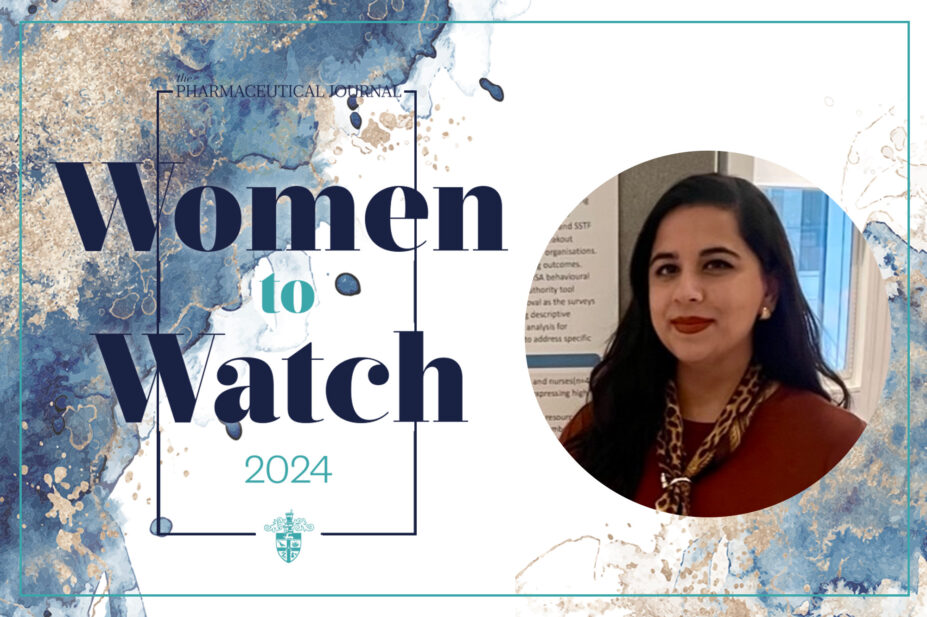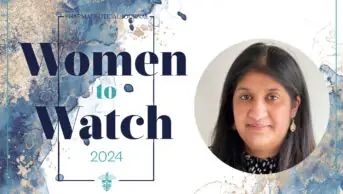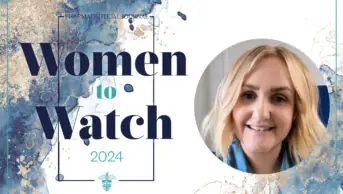
The Pharmaceutical Journal/Maria Nasim
The question that Maria Nasim has asked herself at every stage of her career is: what am I missing to move to the next step? It has taken her from working in hospital pharmacy, to supporting clinical commissioning groups and commissioning support units with medicines optimisation and to teaching at two universities.
It has been a 12-year path of developing clinical skills before moving on to systems change and leadership. Along the way, she has led a care home service in Birmingham South Central, which was recognised locally as the gold standard. In 2021, she established a clinical pharmacy hub, serving more than 300,000 patients across 40 GP practices and 4 primary care networks (PCNs). The hub provided PCN pharmacist services across practices from a central hub, including implementing pharmacy-led structured medication reviews (SMRs) for high-risk patients. It led to a 65% reduction in GP-led SMR clinics, highlighting significant resource savings and efficiency gains.
Originally from Denmark but having moved to Birmingham at the age of 13 years old, Nasim was drawn to pharmacy by her love of chemistry, along with her desire for a career that allowed her to be social and meet people. While at school, she was so inspired by all the guest lecturers who came to talk to them, that she wanted to emulate them all. When studying at Aston School of Pharmacy, it was hard to decide what role within pharmacy would suit her best, she explains.
By 2023, she had built a career that had taken in most parts of pharmacy and in which she had been able to create change but not on a national level. “I wanted to really understand how to influence policy,” she says. This led her to apply for a chief pharmaceutical officer’s clinical fellowship at the UK Health Security Agency, “which really deepened and refined” her leadership skills, she adds.
Projects she worked on included building and sharing antimicrobial stewardship toolkits across England, working with behavioural science teams and colleagues at NHS England.
We have been given information and resources, but I don’t want to just sit on that information. I want to be able to share that with everyone who has similar career aspirations
In a separate project at the chief pharmaceutical officer’s office, Nasim became the south east regional lead for inclusive pharmacy practice. Her goal was to try and prevent staff burnout. The project is ongoing and Nasim is due to speak at a series of conferences to launch the framework she has helped develop.
She also took a deep dive into the differential attainment gap for pharmacy professionals with disabilities and found no guidance at all in England on how to support staff. “What started off as a research project turned into something much bigger, because a lot of people reached out to me through LinkedIn and social media to say these are the barriers they have had in their career. It was so unfair,” Nasim says.
Throughout all of this, senior leaders she met were so generous with their time that Nasim began to think about “paying it forward”, she says. She is deeply concerned about the underrepresentation of pharmacists in senior NHS roles, noting that only 4% of pharmacy professionals occupy senior clinical executive positions. It is an issue she is keen to address.
Our judges were impressed with how Nasim had shown “strategic vision” even before her fellowship but were also taken with her “compassionate approach”, they said.
The issue of burnout among pharmacists is one at the top of her agenda, having observed first-hand the impact of workplace pressures, especially post-COVID-19, on her colleagues. While a member of the Lewisham and Greenwich NHS Trust Board, she actively advocated for more personalised approaches to managing work–life balance, including pushing for hybrid working models and individualised return-to-work plans for pharmacists dealing with COVID-19 anxiety. “These are things I should not have had to campaign so hard about,” she notes.
Investing in the workforce — through mentorship, flexibility and a compassionate leadership style — is essential in alleviating burnout and retaining skilled professionals, she says. “We’re under tremendous pressure in the NHS, so sometimes our attention isn’t on these things. But if you don’t invest in your workforce, the issues will continue.”
This advocacy extends to supporting new parents in pharmacy, after facing her own challenges returning to work after having a baby. She has been incredibly vocal about the need for greater flexibility and support for pharmacy professionals who are also parents and whose career aspirations should not be ignored. She made this a central plank of her manifesto during her recent candidacy for the Royal Pharmaceutical Society English Pharmacy Board.
A crucial part of this is making leadership development more accessible, particularly for those who may not have the chance to participate in formal fellowship programmes. Her next step will be to create a digital platform to share that legacy.
“We’ve got this big network of 150 previous fellows, and we have been given information and resources, but I don’t want to just sit on that information,” she says. “I want to be able to share that with everyone who has similar career aspirations.”
Nasim has also just been appointed as social media editor for The European Association of Hospital Pharmacists, as well as visiting clinical fellow at the College of Life and Health Sciences at Aston University. She has recently become a school governor at Tunbury Primary School in Kent and is a member of ‘Enigma Mentor’, a mentorship programme for ethnically diverse female pharmacy professionals. When she says she’s paying it forward, she means it.
Panel comments
“Maria is a driven professional who has spearheaded initiatives promoting diversity and equity.”
“Even before becoming a Chief Pharmaceutical Officer’s fellow, it appears Maria has been practising at the top of her scope, advocating for equality, diversity and inclusion and pushing for expanded roles and portfolio pharmacy careers.”
- Meet the rest of The Pharmaceutical Journal’s Women to Watch 2024 here


